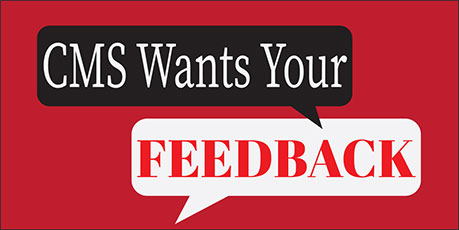What about the Proposed CMS RSNAT PCS Regulation Change?
By Chuck Humphrey, B.A., EMT-B, CAC, CACO, CADS, *
By now, we assume…
By now, we assume you have read about the Center for Medicare and Medicaid Services (CMS) proposed regulation change.
If not, head over to www.regulations.gov and lookup file code CMS-1700-P.
Also, we have found some great information about the proposed regulation change in e-mail blasts coming from the American Ambulance Association and our friends at Page, Wolfberg, and Wirth. Be sure to read their reviews.
RSNATs
RSNATs are Repetitive Scheduled Non-Emergency Ambulance Transports. These are transports defined as three round-trip transports in a 10-day period or one round-trip transport once per week for three consecutive weeks for the same patient to and from the same origin and destination and return.
CMS is finalizing the nationwide expansion of the Prior Authorization program for these trips, basically mandating the ambulance supplier to obtain a Prior Authorization to cover a series of these trips. Without a Prior Authorization from the Medicare Administrative Contractor (MAC), the trip will append for a pre-pay audit.
PCS
For these types of trips, a Physicians Certification Statement (PCS) is required to be executed to support billing to Medicare Fee-for-Service. However, the current regulation covering medical necessity for non-emergency ambulance transports precludes the use of a signed PCS to be used alone to demonstrate medical necessity for ambulance reimbursement by fee-for-service Medicare.
Detailed Explanation
With the proposed regulation change, CMS is now stating that they believe the current regulation has been interpreted too narrowly and, as such, fails to recognize those situations where patient only requires monitoring by EMS crews. As such, CMS is proposing to allow the PCS to support and establish medical necessity in these instances when the patient does not require actual hands-on services. And, to allow the PCS and other documentation to be considered by the MAC to determine medical necessity.
However, in proposing to allow additional documentation outside of the patient care report (PCR) as potential proof to establish medical necessity, CMS has added that they will expect the PCS and the supporting documentation to be detailed.
How many times have you heard us, here at QMC, say the word “detail”?
The concern coming from the industry watchdogs is what detailed will mean in relation to the PCS. Many PCS forms used in the field are check-box-ish forms which allow very busy physicians to check off medical necessity questions without being asked to write any written explanations. The “detailed explanation” language in the proposed regulation change may now necessitate that the physician includes his/her written medical necessity explanation which could add some burden to the process.
Progress
There is hope in our ambulance billing world that the proposed new regulation allowing additional documentation and the PCS form to be considered in the medical necessity process for these RSNAT trips will broaden the spectrum for additional transports to meet the strict guidelines for Prior Authorization approval. Of course, the end-game is the hope that allowing for patient monitoring will open up additional Medicare Fee-for-Service payments to flow to ambulance suppliers who regularly conduct these transports.
July 27, 2022
The proposed rule will be published on July 27, 2022. Comments from the ambulance industry will be welcomed by CMS ahead of publishing the final rule sometime in the fall of the year. If your EMS agency conducts these transports on a regular basis, then we urge you to submit your comments to CMS with your opinion.
Your voice matters in issues like these. Likewise, we applaud the AAA and various state EMS associations that participate in the commentary process, as well.
Do check our blogosphere often for highlights once the final rule is published!
*Chuck Humphrey is the Senior Director of Compliance and a Territory Sales Manager for Quick Med Claims. He is one of our industry experts with over 30 years of experience in the EMS industry.
